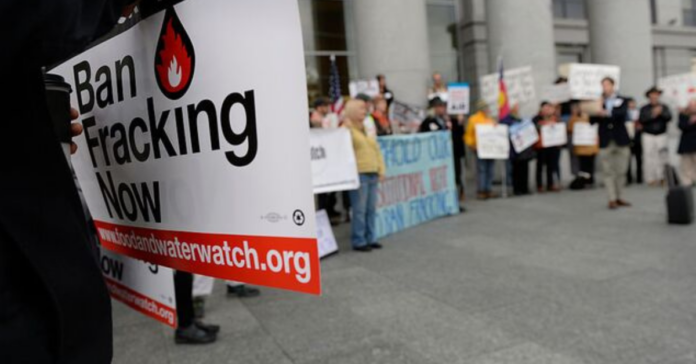Anti-fossil fuel group Resilient Denver has proposed a ban on fracking in the city and county and enlisted the help of an allied group that has pushed several ballot initiatives targeting the oil and gas industry in Colorado in recent years.
Resilient Denver’s proposed amendment could be placed on the November ballot for an up or down vote, but the language must first be reviewed by city officials. That process started last Friday during a feedback session where Resilient Denver answered questions on their measure with the help of Joe Salazar as its legal counsel. Salazar is a former Colorado State Representative and current Executive Director of Colorado Rising.
The text of the proposed amendment calls for the state’s capital and largest city to declare “that it is prohibited to extract fossil fuel, including but not limited to hydraulic fracturing to extract oil, gas, or other hydrocarbons within the City of Denver and all of its subsurface areas.”
The addition of Salazar brings policy heft to the campaign, as Colorado Rising has been at the forefront of the largest oil and gas wars in the state the past several years.
Salazar was a driving force behind Proposition 112 in 2018, a ballot initiative that would have extended the setback distance of oil and gas operations from homes and other structures to 2,500 feet. It was rejected by voters by a large margin, but the campaign prompted a newly elected Governor Jared Polis and a Democratic-led state legislature to pass SB-181 to overhaul industry regulations in 2019.
Colorado Rising’s support of SB-181 was lukewarm at best, with the group expressing frustration that the legislation didn’t outright ban fracking statewide. The group has also been demanding the Colorado Oil & Gas Conservation Commission (COGCC) to use rulemakings to implement a moratorium on production until regulations are finalized in the wake of SB 181’s passage.
The COGCC’s rejection of a statewide moratorium has prompted Colorado Rising to announce a host of new ballot initiatives for 2020 that would again attempt to extend setback distances along with a host of other policies.
There are only a few existing wells in Denver, near the city’s airport, and there are no plans for new production, according to Westword. Yet Resilient Denver’s effort appear focused on setting a precedent that communities can successfully vote to ban fracking, and then using that momentum to pursue bans in other cities and counties.
At the municipal level, Resilient Denver has already succeeded in placing another measure on the 2020 ballot that would give voters the option of enacting a tax on electricity and natural gas use by businesses and households in Denver.
But the group originally wanted their ballot initiative up for a vote in 2019 and pressed the City Council for a referred measure and policies that were much more stringent.
That effort failed due to a rushed process and the purposeful exclusion of various stakeholders. The campaign’s undoing was revealed in an exclusive Western Wire series published last month where an open records request showed certain city council members give Resilient Denver considerable access and influence, including three separate meetings with City Council President Jolon Clark.
An emailed document stated that Resilient Denver “approached Councilman Clark initially in March 2019 and the group “discussed putting forth a ballot initiative that included a ban on all natural gas installations, a phase out of natural gas heat by a specific date, and a phase out all gasoline powered vehicles by a certain date.”
Ultimately, Resilient Denver was unsuccessful because of pushback from Mayor Michael Hancock, the business community, other environmental groups, other council members, and city staff, one of whom said, “I have a really hard time with this process.”
But where internal politics tripped up Resilient Denver’s initial energy tax, it might be legal obstacles that pose the biggest challenge to the fracking ban.
During the feedback session last week, city officials asked repeated questions about how Resilient Denver’s ballot language would withstand legal scrutiny, citing a similar failed fracking ban in Longmont and highlighting the fact that SB-181 specifically authorizes the production of oil and gas.
Salazar expressed confidence that SB-181 would assist Resilient Denver’s campaign and responded to city officials by stating that “the decision in Longmont was pre-181” and there is a “remarkable difference in the powers that are granted to local governments as the result of 181.”

